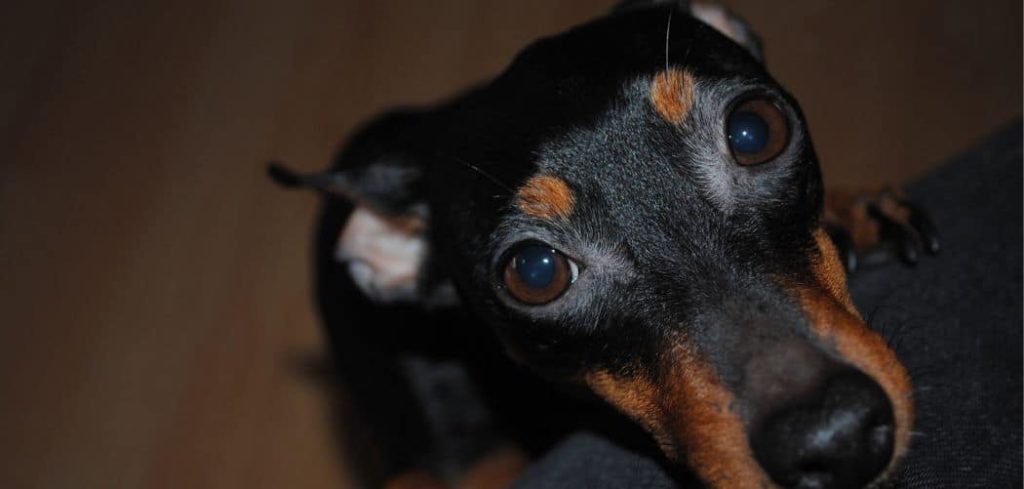Dogs pant for many reasons—but when excessive panting strikes only at night, it can feel especially concerning. Nighttime panting disrupts sleep for both dogs and their owners and may indicate underlying stress, discomfort, or a medical issue.
We outline the common causes of dog panting excessively at night, what you can do at home, and when to seek veterinary help.
Why Is My Dog Panting Excessively at Night — Why It Happens
Nighttime panting in dogs can stem from anxiety, pain, heat, or underlying health conditions that become more noticeable when everything else is quiet. Since dogs rely heavily on panting to regulate body temperature and cope with stress, observing this behavior at rest may be a red flag that something is off.

Common Causes of Dog Panting Excessively at Night
Anxiety and Nighttime Restlessness
Separation anxiety or general stress can peak at night when your dog is alone or confined. Even subtle noises or changes in the environment can trigger panic.
Dogs with nighttime anxiety may pace, whine, or seek constant reassurance in addition to panting.
A change in routine, travel, thunderstorms, or aging-related cognitive issues can also cause nighttime distress.
Pain or Discomfort
Pain is a common cause of panting—especially when a dog lies still and pressure is placed on sore joints, internal organs, or surgical sites.
Arthritis, digestive upset, or hidden injuries may go unnoticed during the day but cause discomfort at night.
Look for other signs like limping, reluctance to lie down, or licking specific body parts.
Heart or Respiratory Disease
Heart failure or respiratory issues like laryngeal paralysis may cause increased breathing effort and panting, especially when lying down.
Panting may be accompanied by coughing, wheezing, restlessness, or a blue tint to the gums.
These conditions tend to worsen at night, especially if the dog’s position restricts breathing.
Overheating or Poor Ventilation
Even if your home feels cool to you, dogs can become warm while lying on bedding that traps heat or in a poorly ventilated room.
Brachycephalic breeds (like Bulldogs and Pugs) struggle to cool down and may pant excessively when overheated at night.
Read more: Dog Panting and Restless At night (Causes and what to do)
Medication Side Effects
Steroids (like prednisone) and some pain relievers may cause excessive panting as a side effect, especially at night when your dog is resting.
If your dog recently started new medications, ask your vet if panting is a known reaction.
Canine Cognitive Dysfunction (Dog Dementia)
Senior dogs may suffer from cognitive dysfunction syndrome (CDS), which affects memory, sleep patterns, and anxiety levels.
Nighttime pacing, panting, barking, or confusion may point to this age-related condition.
What to Do If Your Dog Pants Excessively at Night
Try to keep the sleeping environment cool, quiet, and consistent. Offer a fan, cooling mat, or place your dog near an open window if safe.
Stick to a calming bedtime routine. Offer gentle play, dim the lights, and avoid loud TV or sudden noises near bedtime.
Avoid feeding a large meal or vigorous exercise right before bed.
If your dog is older or has known anxiety, discuss calming aids or supplements with your vet. In some cases, prescription medications or behavioral therapy may help.
Document when the panting happens (time, location, weather, recent events) to identify any patterns.
When to Call or Visit Your Vet
Contact your vet if your dog:
Pants excessively at night for more than two consecutive nights
Shows other signs like coughing, limping, vomiting, or restlessness
Is a senior dog with recent behavioral changes
Has started a new medication before symptoms began
Displays pale or blue gums, which could indicate poor oxygenation
Your vet may recommend a physical exam, bloodwork, chest x-rays, or heart evaluation depending on the suspected cause.
Read more: Dog Panting and Shaking at Night (When to worry)
Key Takeaway
If your dog is panting excessively at night, don’t ignore it—especially if it’s a new or persistent behavior. It could be caused by anxiety, overheating, medication, or more serious medical concerns.
Monitor your dog’s symptoms, ensure their sleep environment is calm and cool, and contact your vet to explore deeper causes and solutions.
With the right care, many dogs sleep better—and so do their humans.
